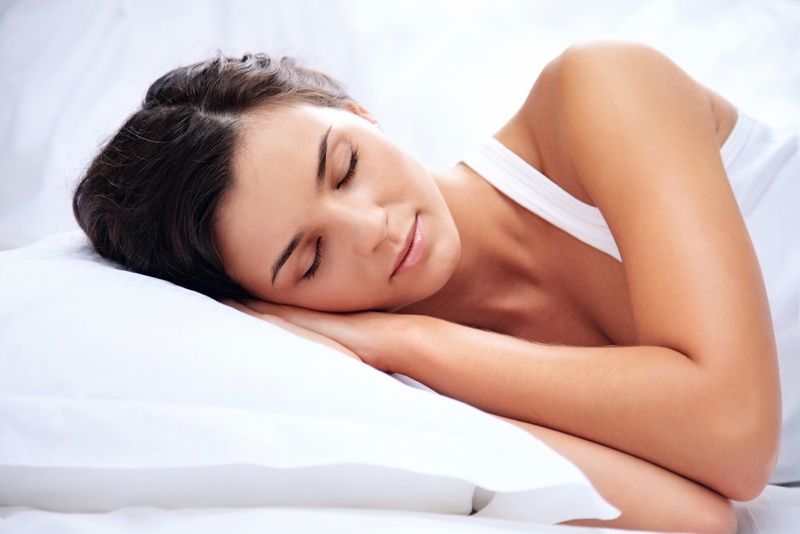Missing Zzzs: Sleep Problems Common for Single Parents, Women

Single parents get less sleep and have more sleep-related problems than adults in households with two parents and adults living without children, a new report from the Centers for Disease Control and Prevention suggests.
The report found that about 43 percent of single parents in the United States get less than 7 hours of shut-eye a day, compared with about 33 percent of U.S. adults in two-parent families and 31 percent of U.S. adults living without children.
"These results are not surprising," said Dr. Stuart Quan, a sleep medicine specialist and researcher at Brigham and Women's Hospital in Boston, who was not involved in the research for this report.
The demands on a person's time are much greater in a family with one parent than in a family with two parents, he said.
"In general, people tend to sacrifice sleep when they have competing priorities, such as work, family responsibilities and social obligations," Quan told Live Science.
And although a person may get some short-term benefits by meeting other priorities when they skimp on sleep, doing so can come with some long-term consequences for that individual's overall health and well-being, Quan said. [5 Things You Must Know About Sleep]
In the report, researchers analyzed data from the 2013-2014 National Health Interview Survey, a yearly survey that collected data from about 44,000 U.S. adults ages 18 to 64 by face-to-face interviews. There were roughly equal numbers of men and women in the survey.
Get the world’s most fascinating discoveries delivered straight to your inbox.
Of those surveyed, around 69 percent were adults who had no children under age 18 living at home, around 26 percent were in two-parent families with children at home and about 5 percent were single parents with kids at home.
The data also showed that women in all types of families were more likely than men to have trouble falling and staying asleep, and to frequently wake up feeling not well-rested, according to the findings published today (Jan. 6) by the CDC's National Center for Health Statistics.
For example, among the women surveyed, 57 percent of single moms said they woke up feeling not well-rested, whereas 46 percent of women in two-parent families, and 39 percent of women living without children said the same.
"In virtually all epidemiological studies of sleep, women tend to have more sleep-related complaints than men," Quan said. In one of the studies he conducted, Quan said, gender-differences in sleep were found from a very young age.
Health consequences
Starting around the age when a girl first gets her period and continuing into her elder years, a woman typically has more difficulty getting to sleep, remaining asleep and feeling refreshed in the morning compared with men, Quan said.
It's difficult to know whether women's sleep problems are hormonal in nature or if they are a reflection of women's role in society, he said.
In his own research on sleep apnea, a condition in which people experience pauses in breathing during sleep, Quan found evidence that women perceive sleep differently than do men.
While men may complain of "feeling sleepy," which to them means they could fall asleep right now if they went to bed, women are more likely to say they "feel tired or fatigued," he said. "Tired can mean a lot more than sleepy," Quan noted, it might not necessarily mean that the person could lie down and fall asleep.
"At least 7 hours of sleep a day is necessary for adults for optimum health," Quan said. He explained that sleep is integral to all of the body's organs and functions, and yet many Americans don't get enough sleep.
There is increasing evidence that people who don't get sufficient sleep have an increased risk of heart disease, hypertension and diabetes, and they are also more likely to die over a given period, Quan said. A lack of sleep can also depress immune response, making a person more prone to sickness and infections.
But it's not just physical health that suffers — being sleep-deprived can have a wide range of negative consequences on mental health. It can also affect a person's performance at work, school and behind the wheel, Quan said.
When students are studying, for example, there's good reason to sleep on it and avoid pulling an all-nighter, Quan said. Sleep is necessary for learning and processing memories, and getting too little sleep can lead to poor judgment and may increase risk-taking, Quan said.
Follow Live Science @livescience, Facebook & Google+. Originally published on Live Science.
Cari Nierenberg has been writing about health and wellness topics for online news outlets and print publications for more than two decades. Her work has been published by Live Science, The Washington Post, WebMD, Scientific American, among others. She has a Bachelor of Science degree in nutrition from Cornell University and a Master of Science degree in Nutrition and Communication from Boston University.


